Did you know that bats eat 1,000-3,000 insects every single night? This means they are extremely useful for natural pest management on farms.
Rory Cummins, a 17-year-old inventor revealed this fact to Irish Country Living when talking about his innovative new bat boxes. “This even surprised me when I heard about it first. I did not know how important bats are,” says Rory.
It all started back in December last year, when Rory went to sell his woodwork at a Christmas market.
“I love making things with my hands and I have a huge passion for woodwork. I make little things like bird houses and logs and sell them at Christmas markets.
"So the whole bat box idea started when I went to this farmers market with my Christmas products and a farmer came up to me and asked if I’d be able to make a bat box?’”
Rory’s not one to shy away from a challenge, so he decided to do some research.
“First of all, I needed to know what made a good bat box, the different requirements. I learned more about the Agri-Climate Rural Environment Scheme (ACRES) scheme and how there’s incentives for farmers to install good bat boxes.
"And then I realised that there wasn’t a lot of quality options out there on the market, so there might be demand in this area. I decided I could put my own twist on old designs and create something better and newer, with more availability to farmers.”
Rory, who hails from just outside Kildare town, also learned some things about bats in the process.
“As I researched, I found a new appreciation for bats and understood that they’re actually more important than most people realise,” he explains.
Horse flies and mosquitoes can be a big pain for farmers, who will often spend a lot of money on pest control (which involves the use of chemicals) while bats naturally help keep the number of insects down. But bats are also an endangered species.
“By cutting down trees and stuff like that, they’re losing out on habitat. So by putting up a bat box, it helps them have somewhere to go, gives them more options and a better, more secure place to stay,” he says. Thus, Rory’s bat boxes can help support biodiversity.
So what kind of bat boxes did Rory end up making?
“I wanted to create something that would be easy to use for farmers, that you could just set up and install very simply. Something that would last a lifetime and be a good quality option over the timber, conventional bat boxes that would rot away after maybe five to 10 years.”
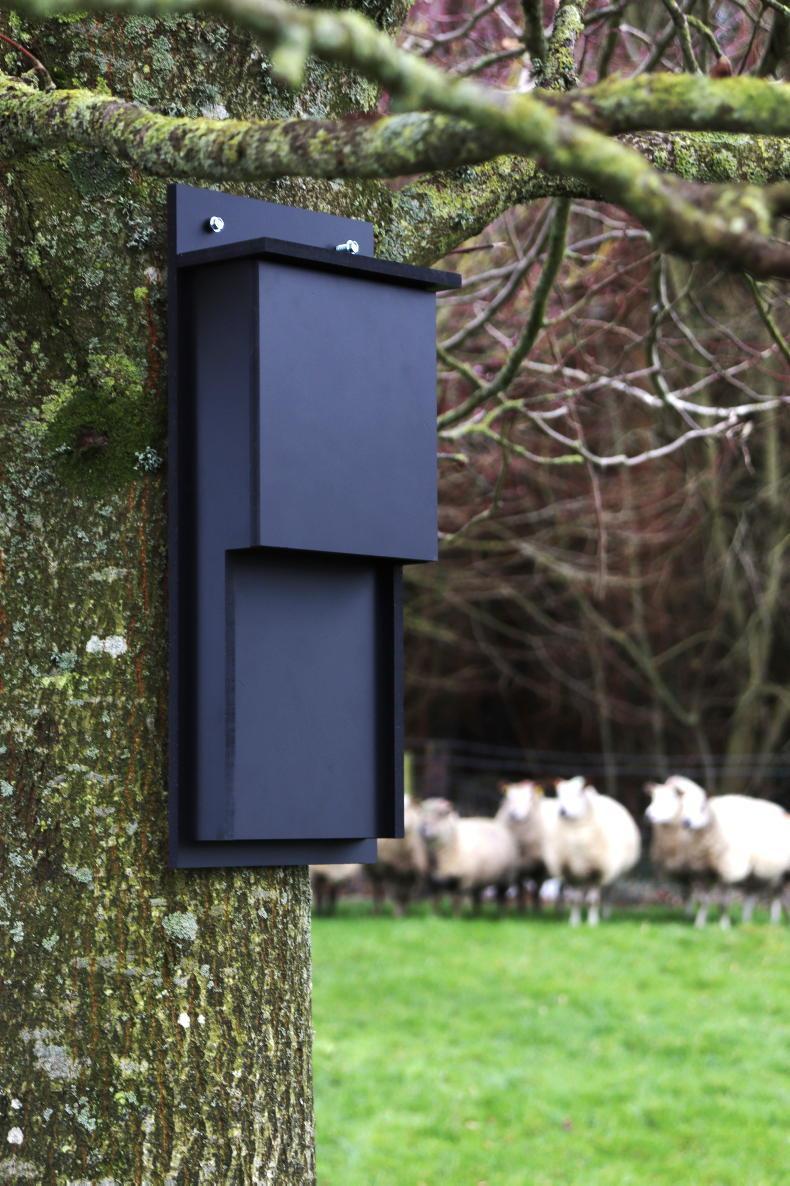
The installed Bat Haven bat boxes can help a farmer with pest control and boost biodiversity.
After Rory realised that a good bat box has to be waterproof and made out of durable material, he decided to make his boxes out of black PVC foam board.
“I found out that the darker colour the boxes are the better, because it traps in heat, which creates a better environment for the bats. Once it’s weatherproof, there’s no maintenance. So it’s easy for farmers.
"They’re busy with their days, they don’t want to have to worry about another box to paint – because from using timber I know that it needs to be treated and paints are toxic to bats.”
PVC foam board is made out of non-toxic plastic, which means that it doesn’t contain any harsh chemicals that could damage the wildlife in and around the bat box, according to Rory.
The only drawback of PVC foam board is that there isn’t enough grip for the bats compared to timber, so Rory had to add a wire mesh to it. He hasn’t seen anyone make bat boxes like this before – it’s an original Irish invention.
Rory’s bat box can fit up to four bats. He designed it by hand first and then used Sketchup, a 3D design software, to create the final model.
It adheres to all the requirements of the ACRES scheme, which means that farmers can make use of a government support of €56.43 per bat box to purchase from Rory – you have to buy at least three boxes and no more than 15 to receive this funding.

Rory Cummins with his bat box invention.
Each bat box is handmade by Rory. “Having a background in carpentry and woodwork definitely comes in helpful because the material acts very much like timber in a way that you can cut it easily,” he says.
Rory’s passion for building things was inspired by his grandfather, who was a builder at Kildangan Stud in Co Kildare. “Growing up, you know, I was always fascinated by how he could turn a piece of timber into something usable,” Rory recalls.
He has sold about 40 bat boxes so far, Rory is trying to promote the business while also being a full-time student – he will sit the Leaving Cert in St Paul’s Monasterevin next year.
For now, Rory is unsure of what path he’ll go down on after school, but one thing is certain: he wants to give back and contribute somehow.
That is exactly why he’s encouraging farmers to consider his bat boxes: “I think every farm should have them, there’s simply no disadvantage to having a bat box.”
For further information on Rory’s products go to bathaven.ie or call 089 4750499.
The Bat Haven bat boxes are made of PVC foam board, which means they’re very durable and weatherproof.Farmers can avail of the Agri-Climate Rural Environment Scheme (ACRES) grant to finance their purchase of bat boxes.Bats are very useful for pest control on farms.Rory’s aunty and uncle are farmers and so was his grandfather on his father’s side.
Did you know that bats eat 1,000-3,000 insects every single night? This means they are extremely useful for natural pest management on farms.
Rory Cummins, a 17-year-old inventor revealed this fact to Irish Country Living when talking about his innovative new bat boxes. “This even surprised me when I heard about it first. I did not know how important bats are,” says Rory.
It all started back in December last year, when Rory went to sell his woodwork at a Christmas market.
“I love making things with my hands and I have a huge passion for woodwork. I make little things like bird houses and logs and sell them at Christmas markets.
"So the whole bat box idea started when I went to this farmers market with my Christmas products and a farmer came up to me and asked if I’d be able to make a bat box?’”
Rory’s not one to shy away from a challenge, so he decided to do some research.
“First of all, I needed to know what made a good bat box, the different requirements. I learned more about the Agri-Climate Rural Environment Scheme (ACRES) scheme and how there’s incentives for farmers to install good bat boxes.
"And then I realised that there wasn’t a lot of quality options out there on the market, so there might be demand in this area. I decided I could put my own twist on old designs and create something better and newer, with more availability to farmers.”
Rory, who hails from just outside Kildare town, also learned some things about bats in the process.
“As I researched, I found a new appreciation for bats and understood that they’re actually more important than most people realise,” he explains.
Horse flies and mosquitoes can be a big pain for farmers, who will often spend a lot of money on pest control (which involves the use of chemicals) while bats naturally help keep the number of insects down. But bats are also an endangered species.
“By cutting down trees and stuff like that, they’re losing out on habitat. So by putting up a bat box, it helps them have somewhere to go, gives them more options and a better, more secure place to stay,” he says. Thus, Rory’s bat boxes can help support biodiversity.
So what kind of bat boxes did Rory end up making?
“I wanted to create something that would be easy to use for farmers, that you could just set up and install very simply. Something that would last a lifetime and be a good quality option over the timber, conventional bat boxes that would rot away after maybe five to 10 years.”

The installed Bat Haven bat boxes can help a farmer with pest control and boost biodiversity.
After Rory realised that a good bat box has to be waterproof and made out of durable material, he decided to make his boxes out of black PVC foam board.
“I found out that the darker colour the boxes are the better, because it traps in heat, which creates a better environment for the bats. Once it’s weatherproof, there’s no maintenance. So it’s easy for farmers.
"They’re busy with their days, they don’t want to have to worry about another box to paint – because from using timber I know that it needs to be treated and paints are toxic to bats.”
PVC foam board is made out of non-toxic plastic, which means that it doesn’t contain any harsh chemicals that could damage the wildlife in and around the bat box, according to Rory.
The only drawback of PVC foam board is that there isn’t enough grip for the bats compared to timber, so Rory had to add a wire mesh to it. He hasn’t seen anyone make bat boxes like this before – it’s an original Irish invention.
Rory’s bat box can fit up to four bats. He designed it by hand first and then used Sketchup, a 3D design software, to create the final model.
It adheres to all the requirements of the ACRES scheme, which means that farmers can make use of a government support of €56.43 per bat box to purchase from Rory – you have to buy at least three boxes and no more than 15 to receive this funding.

Rory Cummins with his bat box invention.
Each bat box is handmade by Rory. “Having a background in carpentry and woodwork definitely comes in helpful because the material acts very much like timber in a way that you can cut it easily,” he says.
Rory’s passion for building things was inspired by his grandfather, who was a builder at Kildangan Stud in Co Kildare. “Growing up, you know, I was always fascinated by how he could turn a piece of timber into something usable,” Rory recalls.
He has sold about 40 bat boxes so far, Rory is trying to promote the business while also being a full-time student – he will sit the Leaving Cert in St Paul’s Monasterevin next year.
For now, Rory is unsure of what path he’ll go down on after school, but one thing is certain: he wants to give back and contribute somehow.
That is exactly why he’s encouraging farmers to consider his bat boxes: “I think every farm should have them, there’s simply no disadvantage to having a bat box.”
For further information on Rory’s products go to bathaven.ie or call 089 4750499.
The Bat Haven bat boxes are made of PVC foam board, which means they’re very durable and weatherproof.Farmers can avail of the Agri-Climate Rural Environment Scheme (ACRES) grant to finance their purchase of bat boxes.Bats are very useful for pest control on farms.Rory’s aunty and uncle are farmers and so was his grandfather on his father’s side. 





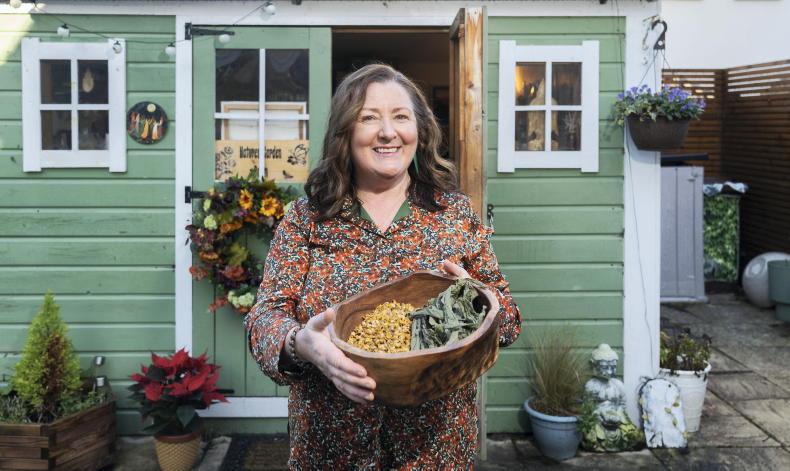
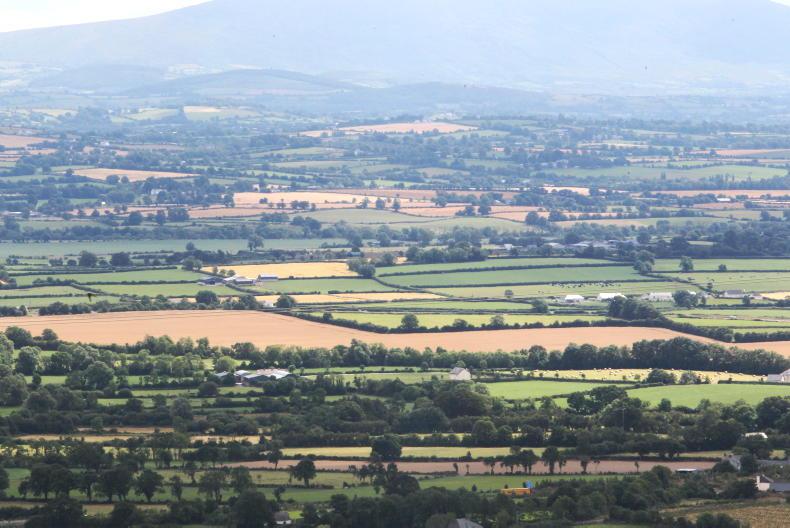
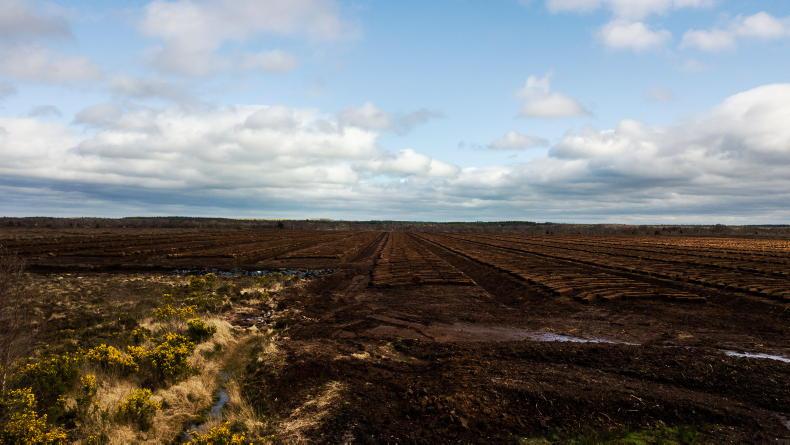
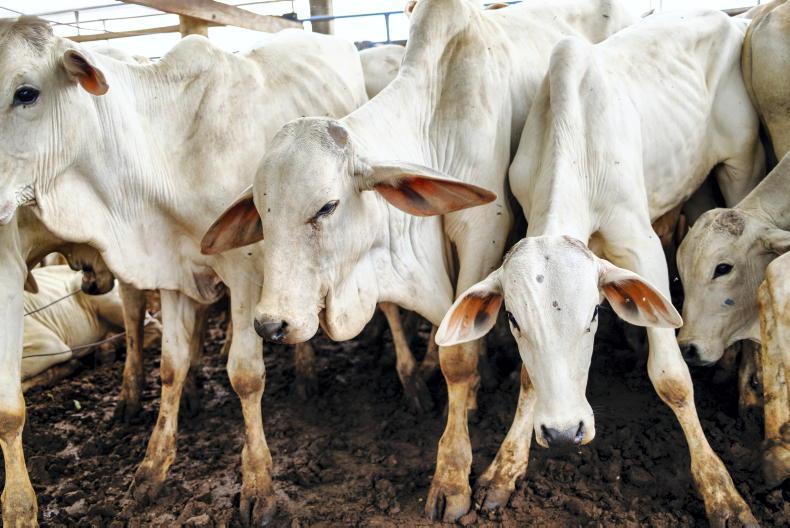
SHARING OPTIONS